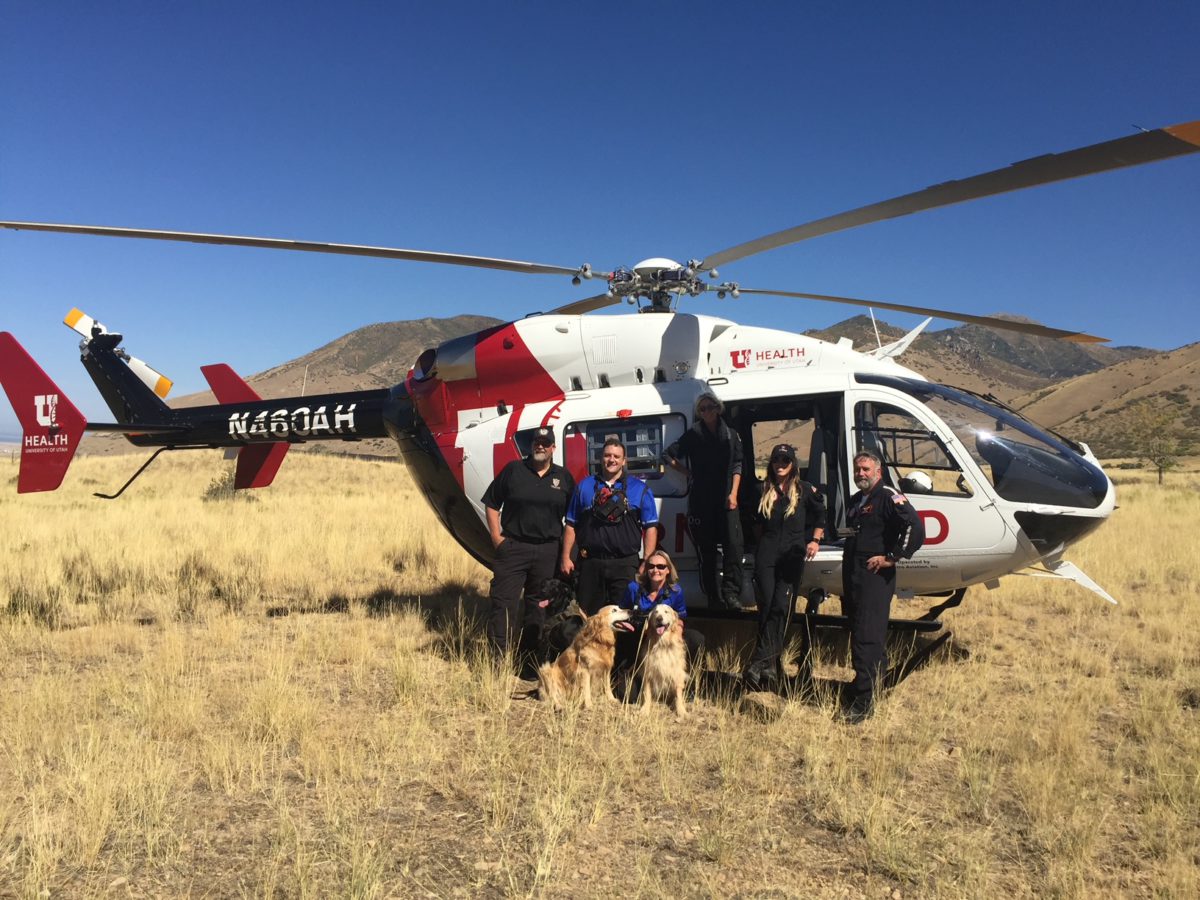
Searches Need More Than Magic, Your Dog Needs Training, But So Do You
By Kacy Robinson
Search dog handlers have a unique advantage simply because we have highly trained and very specialized canines to aid us in our work, but that doesn’t mean we can allow all the other skills we have spent decades gaining go to waste. It is the culmination of both the skills of the handler and the skills of the canine that make our teamwork successful.
Like any skill, search and rescue or recovery skills must be consistently practiced to maintain proficiency. For the search and rescue, and/or recovery canine handler, these also include your canine’s skills. For those just beginning their career in this field, there are a myriad of skills to obtain. While it may seem overwhelming, each search mission is different, and any number of those skills may be needed to complete a successful search. As I repeat over and over during training, demonstrations and actual searches, our canines do not conjure things up by magic. It is the job of the handler to ensure canine success by being prepared for any situation which may arise during an actual search.
So, where do you begin if you are interested in becoming a search and rescue and/or recovery canine handler? The first step is to find a team you are interested in joining. There are many different types of canine teams located throughout the world. Some focus only on live finds, some focus only on cadaver recoveries. Others do a combination of both. Some teams provide tracking canines, while others focus on disaster recovery, live or cadaver. And then there are teams like ours, that focus on cold case recoveries and critical incidents.
Once you have decided the type of team that interests you the most, the best thing you can do is observe those handlers while they are training. Most teams allow individuals who are interested in joining to attend trainings and see how they train and observe their work. Our team, Fide Canem Cold Case, Inc., allows anyone interested to attend and observe trainings.
We also encourage those that are interested to get involved as a volunteer for the team, hiding for the canines to train on live find scenarios, and/or placing source for the canines to locate for human remains training. This type of hands-on participation allows the interested individual to see the kinds of search work the team undertakes, along with getting a basic sense of what it takes to be a canine handler and complete the necessary training.
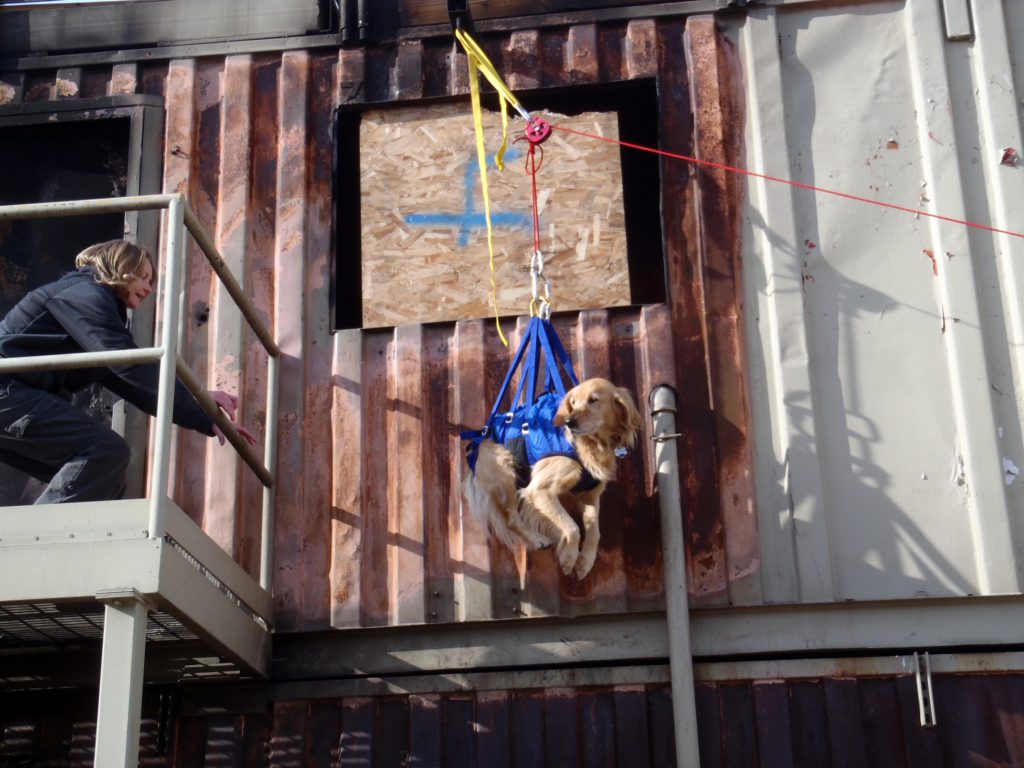
Scenario Training Matters, As Does Situational Diversity
Our team, Fide Canem Cold Case, Inc., trains for real-world scenarios. Our handlers constantly review cases, consult cases, study, and seek information about the cases that are taking place in the areas in which we search. Training on real-world scenarios allows our handlers to respond quickly and competently to any situation we may encounter. We also ensure we are training in worst-case scenarios. This means we train with the smallest or most degraded source, in the hardest area or situation possible. By training for the worst, we are confident we will be successful even during the best-case scenario.
We also expose our canines, handlers and search support to as many different search types and scenarios as possible. This means hot-loading into helicopters, searching from boats and the shore, searching with ATVs, flying fixed-wing aircraft to remote locations, searching from snowmobiles, and ensuring we have the necessary back-country skills to survive if stranded alone for several days. Observing and participating in any of these activities builds skills that are essential for canine handlers and search support staff. Observe trainings held by the team you want to join and any other teams to which you have access. You may think you want to be a part of a specialized canine team only to find that you are better suited to a county or local team instead. Having experienced many different types of teams ensures you will make the best possible decision when joining a team.
It is important to note that most search and rescue and/or recovery teams are comprised of volunteers and many are non-profit. This means the time, travel and any expense associated with training and or searching will be the responsibility of the searcher. With the cost of travel and equipment, searching can be quite expensive. The time required to become an active member of a search team is also extensive and often requires being on call 24 hours a day, 7 days a week. It is important to bear both the expense and time required before deciding that search and rescue/recovery is the right fit for you.
When someone wants to join our team, we make sure they understand that there are no halfway measures when it comes to being a search and rescue and/or recovery canine handler or a search team staff member. When you commit to a team, you must commit fully with the understanding that a significant amount of time and expense will be incurred in order to be a part of the team. Searchers do what they do because they are passionate about helping their communities and bringing the lost home. If you don’t have that passion, search work is not for you.
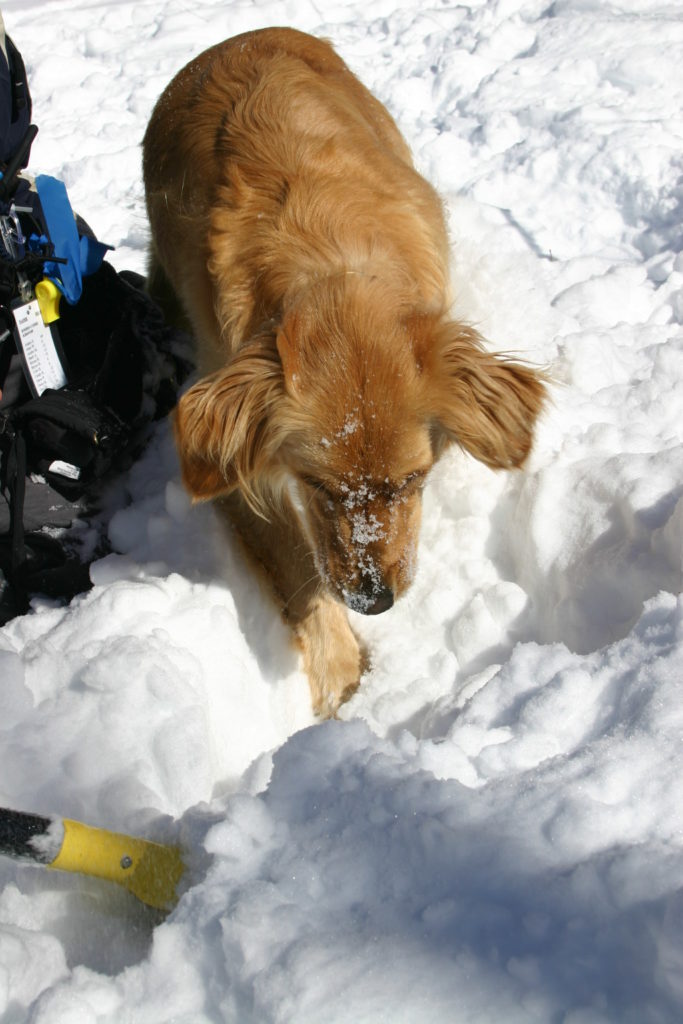
Research & Keeping Pace With Advancements Is Necessary
It is also important is to begin researching and studying to complete the necessary certifications required for the team in which you are interested. This may mean a wilderness survival course, map and compass certification, first aid/CPR, advanced man tracking, line/grid searching, blood borne pathogens, FEMA Incident Command Structure Training, evidence collection and preservation, crime scene preservation, high angle rescue, ropes and knots, and a variety of other specialized skills. The team in which you are interested likely has an extensive list of training and certifications required before you can began assisting with searches and/or training a canine for search and rescue/recovery work.
There are many informative search training manuals and books available for each type of search or recovery discipline. As established handlers, our team studies and reads constantly in order to remain current on techniques. The team in which you are interested likely has training manuals and information for you to study, but any outside information you can learn will only enhance your skills and prove you valuable to their organization.
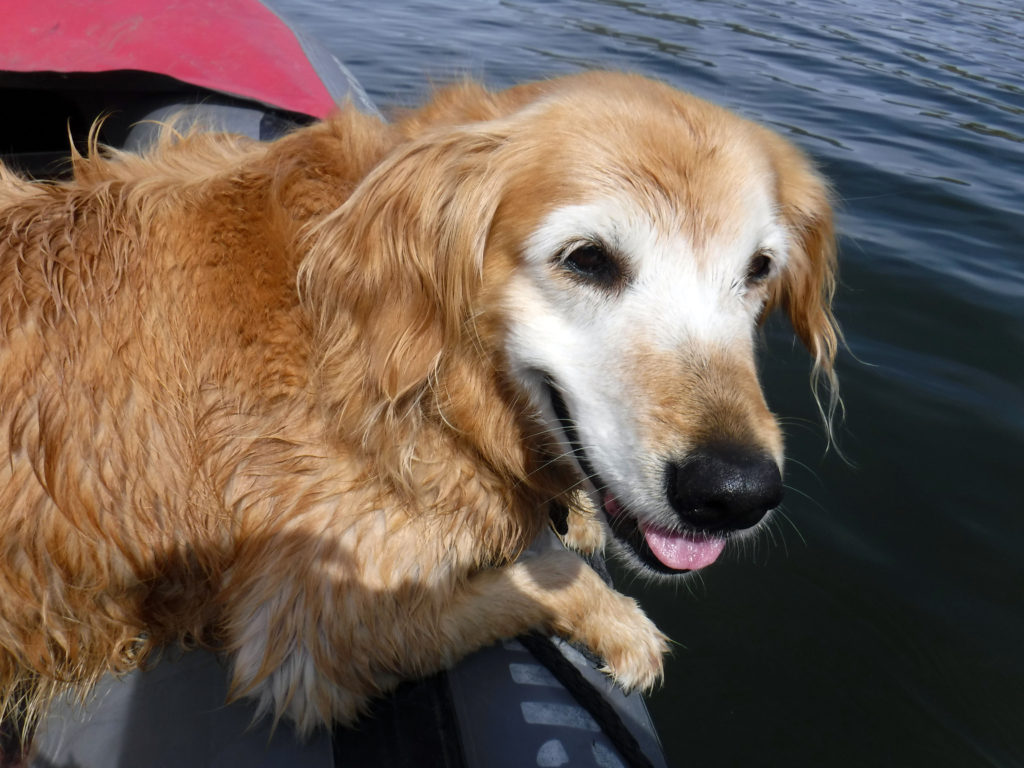
Because our team concentrates on aged missing persons and cold cases, Fide Canem Cold Case, Inc., requires highly specialized certifications and skills in order to be considered for membership. Some of our requirements include current or previous law enforcement or military experience, crime scene analysis certifications, specialized evidence identification, preservation and recovery techniques, forensic anthropology, and expert witness testimony and report writing expertise. Established team members or team management members can guide you through the necessary requirements and certifications.
Beyond the basics, studying lost person behavior, forensic psychology, and forensic pathology can also be helpful in understanding the cases in which you will be assisting. It is helpful to understand how different types of mental states can lead people to behave in certain ways. It is also helpful to understand how human behavior does or does not change when facing trauma or being lost. For example, it has been proven that those who are left-handed tend to make more left turns when lost and searching for a way out of a wilderness area. Likewise, right-handed people tend to make more right turns. When you have a quiver full of basic and advanced human behaviors and psychology when you reach a search, or are consulting a case, you have the ability to ask the questions which can ultimately lead to successfully finding or recovering the missing person.
It’s important to remember that there is a wealth of information to learn prior to embarking on a search career, but the learning continues throughout a search career as well. Technology changes, techniques evolve and those who search have to adapt, but that is all part of the adventure. Utilizing the many resources available, seeking out opportunities to observe and participate in training with search and rescue/recovery teams, and always being open to learning the skills necessary to be successful are all keys to a lifelong career serving the community in this unique capacity.
You can read Kacy Robinson’s previous piece for Biometrica on canine training here and on the life of a canine handler dealing with cold cases here.
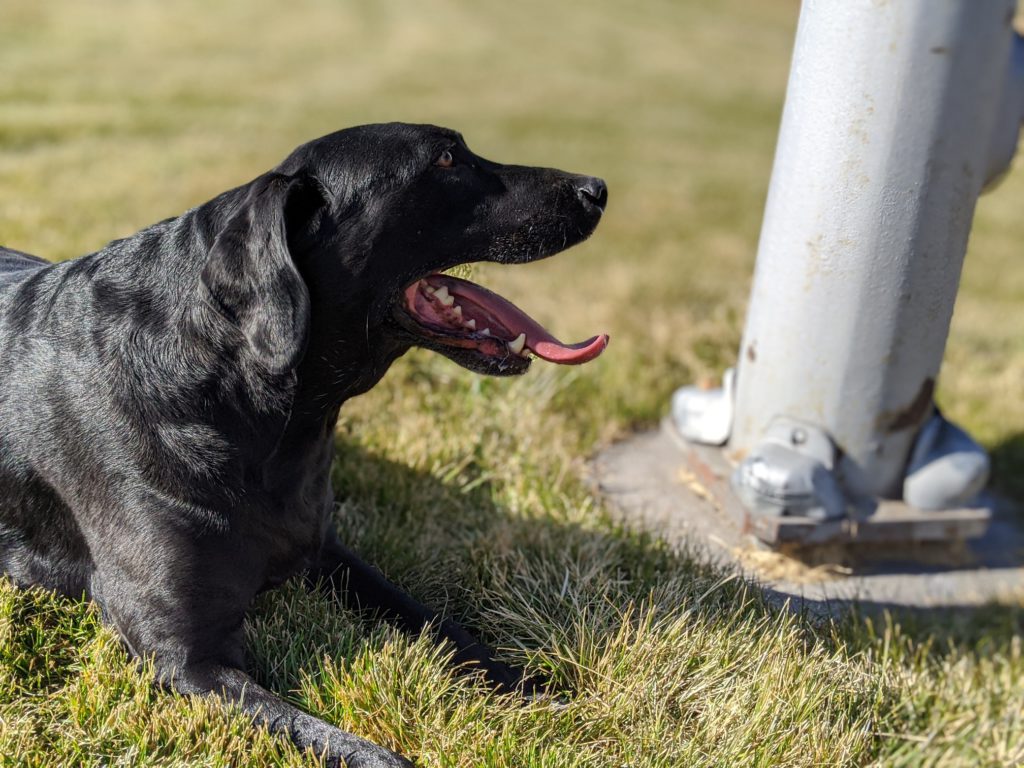
Author Bio: Kacy Robinson got her associate of science degree in Criminal Justice at the College of Eastern Utah and followed it up by certifying as a Crime Scene Analyst from the Utah Bureau of Forensic Services Crime Scene Academy. She also has a BA Communications through the University of Utah and an MS in Computer Forensics from the Henry Lee College of Forensic Science at the University of New Haven. While attending, she was the Lead Archivist on the Robert F. Kennedy Assassination Project, and spent twelve years with the oldest and largest search and rescue organization in the state of Utah with her two canine partners, the late Uintah, and Wahsatch, both Golden Retrievers.
In 2017, Kacy and search partner Bret Sayer established Fide Canem Cold Case, Inc., the first search and recovery team focused exclusively on cold case missing persons and evidence recovery. Bret is a Salt Lake City native who has worked in public safety and security for 20 years. As security manager for a major corporation, he oversees a team of more than 50 officers. Bret attended Weber State University in Ogden, Utah, with a focus on Criminology, Forensics, Chemistry and Laws of Evidence. He is a K9 Human Remains (Cadaver) Handler in tandem with Halo, his 6-year-old Black Labrador Retriever, and has been a search and rescue K9 handler for 8 years. He was assigned to be the callout coordinator and law enforcement liaison in deploying and activating search and rescue teams. Kacy and Bret can be reached here.